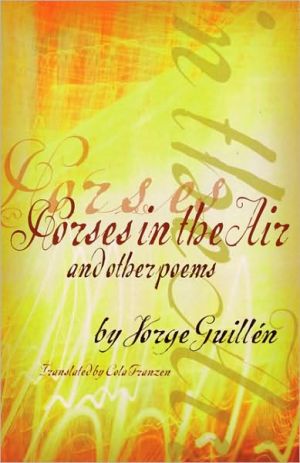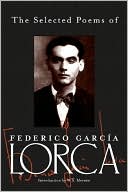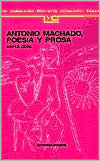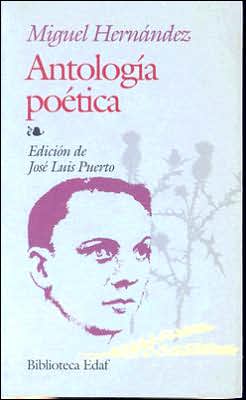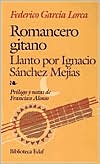Horses in the Air and Other Poems
Winner of the 2000 Harold Morton Landon Translati+C100on Award.\ A major Spanish poet of the Generation of ’27, Jorge Guillén’s luminous poetry, marked by nobility of mind, balance, and clarity of vision, deserves to be more widely known to readers of English.\ Guillén was born in Valladolid, Old Castile. At the outbreak of the Spanish Civil War in 1936, he was arrested and detained briefly in Pamplona as a political prisoner. He left Spain in 1938 and went into voluntary exile in the United...
Search in google:
Winner of the 2000 Harold Morton Landon Translati+C100on Award. A major Spanish poet of the Generation of ’27, Jorge Guillén’s luminous poetry, marked by nobility of mind, balance, and clarity of vision, deserves to be more widely known to readers of English.Guillén was born in Valladolid, Old Castile. At the outbreak of the Spanish Civil War in 1936, he was arrested and detained briefly in Pamplona as a political prisoner. He left Spain in 1938 and went into voluntary exile in the United States, where he remained until after the death of Franco. In 1978 he returned to live in Spain. He died in Málaga in 1984.Many poems in Horses in the Air were written in America; many of them have never been translated into English before. Guillén’s view of Europe from the New World, his experience as an exile and an immigrant, as well as his encounter with Spanish America and with Spain in America provide insights into our shared culture that are fresh and relevant today.Library JournalAlthough a member of the influential Generation of 1927 and one of the greatest Spanish poets of the 20th century, Guill n (1893-1984) is not widely known in the English-speaking world; the last major mainstream translation of his work is now almost 20 years old. This bilingual anthology presents 85 representative poems from every stage of Guill n's career: the optimistic affirmation of "C ntico," the social immediacy of "Clamor," and the literary tributes in "Homenaje." Unfortunately, the capricious order does not indicate which poems come from which collection. The selections vary in length, from the three-line nugget "Natural or Divine"--"High tide. The tide recedes./ Once resolved, love recedes./ The reason for things recedes"--to the lengthy anti-totalitarian "The Power of Perez." Guill n's reputation rests on his formal perfection, almost classical symmetry, and precision--traits that facilitated this translation--and these selections corroborate that reputation. A noteworthy retrospective of an overlooked and undervalued poet.--Lawrence Olszewski, OCLC Lib., Dublin, OH Copyright 1999 Cahners Business Information.
IntroductionSliver of Spring3A Window5Clear Stream7Horses in the Air9The Exile17Living21Firefly29Invasion31Corner Bar33The Supreme Ones35Power of Perez37The Weary Man's Dawn61Hotel of Both Worlds65Blood in the River67Figurations77In Plain Sight79Like You, Reader81Date85About the passage95Corner97My Dear Sir99Halfway Daphne101The Restless103Ruins with Fear105Beard with Nest107Freckles109Observe Life111Penury115Those Summers117Barely Autumn119A Prison121Air All Around123Vespertine Shore125Emptiness127Seen and Remembered129Christmas in Piazza Navona131Original Silence133St. Sebastian135Journeys137Suspicion of Seal139So Beautiful Still141Venice: Festival143Along the Verge145Almost Too Much147Body Alone149The Greatest Commotion151Rivers of China155Ardent October157Ripeness159Sea Air161This Mediterranean Sea163Zoological Garden165Man as Evil Demiurge167Within the Castle Still169Courageous Love171Who Has Not Said Stupid Things?173The Minstrel and his Listener175Cult of Aurora179Leaves of Grass in the Wind181Expectancy183Meaningful Landscape185Twelfth of October185The Muse in Retirement187Hotel Guest189Ultramadrigal191Ministry, Minstrelsy193Letters195Now This is Really Absurd197Circus Moonbeam199That Young Man201If the Critic were to Read203Perpetual Motion205About Forgetting207Remembering I Discover209Land Breeze211Consolation213Salvation over the Water215Palazzo217Jungle Animal219The Hills of Bogota221Return to the Place Where I Once Lived225Treasurer227Extinction229Natural or Divine231Adaptable233Cartagena of the Indies235Transition237
\ Library JournalAlthough a member of the influential Generation of 1927 and one of the greatest Spanish poets of the 20th century, Guill n 1893-1984 is not widely known in the English-speaking world; the last major mainstream translation of his work is now almost 20 years old. This bilingual anthology presents 85 representative poems from every stage of Guill n's career: the optimistic affirmation of "C ntico," the social immediacy of "Clamor," and the literary tributes in "Homenaje." Unfortunately, the capricious order does not indicate which poems come from which collection. The selections vary in length, from the three-line nugget "Natural or Divine"--"High tide. The tide recedes./ Once resolved, love recedes./ The reason for things recedes"--to the lengthy anti-totalitarian "The Power of Perez." Guill n's reputation rests on his formal perfection, almost classical symmetry, and precision--traits that facilitated this translation--and these selections corroborate that reputation. A noteworthy retrospective of an overlooked and undervalued poet.--Lawrence Olszewski, OCLC Lib., Dublin, OH Copyright 1999 Cahners Business Information.\ \ \ \ \ Kirkus ReviewsHORSES IN THE AIR ( paperback original; Jul.; 246 pp.; 0-87286-352-2): Guillén has not lacked translators into English (including Richard Wilbur, W.S. Merwin, and Mark Strand), so Franzen picks as much as possible from untranslated portions of Guillén's massive output between 1928 and 1967. (Unfortunately, she doesn't date or locate each poem, though she does provide the Spanish original en face.) One of the great "Generation of 1927," with García Lorca, Rafael Alberti, and Luis Cernuda (among others), Guillén (1893-1984) left Spain in 1938 as a part of the postwar diaspora for some 20 years of voluntary exile (at Wellesley College), lasting until Franco's death in the late '70s. Franzen well represents the breadth and depth of the poet's marvelous achievement: the lovely short lyrics that affirm life with his secular mysticism; the cosmic encounters with the natural world that encourage us to share his sense of time and space; the long narrative poems that satirize the inanities and brutalities of the Fascist regime; and a series of "marginal notes"—poems that imitate, cajole, criticize, engage, and answer writers from Lucretius and Vico to Whitman and Henry James. Though Franzen captures the simplicity of Guillén's typical oaths ("I accept / my human condition"), she ignores the rhyme schemes that make his shorter work so melodious.\ \
